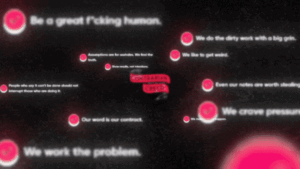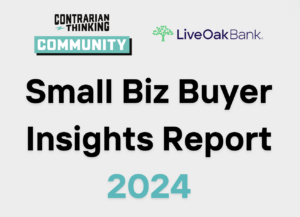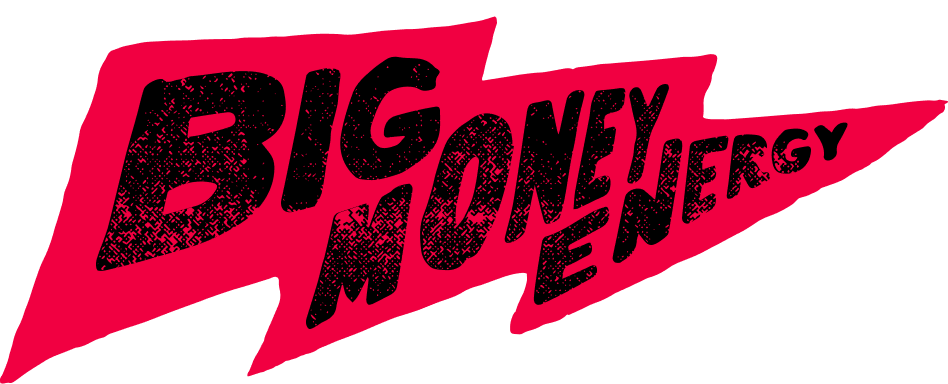
The information contained here may not be typical and does not guarantee returns. Background, education, effort, and application will affect your experience. Your results will likely vary.
Hey Contrarians,
When one role comes to an end, how do you figure out what comes next?
It’s a daunting question we all have to face in our careers, whether you’re a pro athlete or the owner of a small business.
Today’s wild and inspiring story is about how Brandon Dixon found his answer to that question, and baseball is just the tip of the iceberg.

Today in 5 minutes or less, you’ll learn:

Thinking through his next big play
Raised in Southern California. College baseball at the University of Arizona. Drafted by the Dodgers in 2013. Professional baseball for a decade afterward.
It’s safe to say much of Brandon Dixon’s life has been filled with baseball. The best baseball.
A stint for the Cincinnati Reds. Another with the Detroit Tigers. A run in Japan with the Rakuten Eagles.
Best of all may have been his time at the San Diego Padres, his hometown team, where he was able to conclude his big league career in 2023.
Sounds like the dream, and in some ways, it certainly is.

“It pays well, it’s fun, but once you have a wife, once you have a daughter… The back and forth and not having a consistent schedule or plan — it wears on you over time,” he told us.
“The question of what to do after baseball was probably the most haunting question I had my whole career.”
Interestingly, for Brandon, it was that year in Japan when things started to click.
“It was 2021, a Covid year. My family couldn’t travel to Japan, and I had nothing but time to learn about things outside of baseball.”
Sometime that year, Brandon heard a podcast interview with none other than Codie Sanchez.
“It opened my eyes to the world of buying small businesses,” he said, “And I just thought that’d be an interesting thing to look into as I’m winding down my career.”

What it’s like swinging at a tough changeup
So Brandon proceeded down the rabbit hole. Reading. Watching. Researching. Asking questions.
After Japan, Brandon got the job with the Padres, where he spent a couple of years. Still, he kept on digging and leaning in.
“If you see something, let me know,” he told one financially savvy CFO and CPA friend.
The friend had worked with a certain street sweeping business about 5 years prior. As it turned out, the owner was now looking for a buyer after a failed sale.
“Hey, I sold this business,” the owner said. “I did seller financing. The guy stopped making payments. I had to take it back over. I’m 80 years old, I’m tired. The business is falling apart. Do you want to buy it from me?”
Brandon’s friend relayed him the message.
“He’s interested in selling. It’s losing money. It’s a turnaround. He just wants an offer. Just wants out of it. But wants someone who’s actually going to try and build this thing.”
As you can imagine, and as Brandon put it, “There was quite a lot wrong with this.”
“But, it checked a lot of boxes. Recurring revenue. Government contracts. It’s a need. Cities, construction sites, parking lots — they have to be swept.”
So Brandon and his friend decided to partner up.
They offset some risk by offering a price they could substantially recoup by selling the equipment if needed, and the owner accepted. Cleaner Streets was now their business.
And yes, all this while Brandon was still playing in the majors.
In the locker room at Petco Park, if a teammate asked why he was on the phone, Brandon just told them the truth.
“One of my trucks just broke down, and I have to find a tow in Ventura, California.”

Interestingly, Brandon had even spoken with a teammate about the idea of buying businesses.
“But you should understand, I was on teams with multiple guys who have made or are going to make hundreds of millions. I’m not in that world,” as he put it.
“As in, one of us bought a struggling street sweeping business. The other bought an MLS soccer team. Only time will tell who made the better choice,” he said.

Knowing how to hit a curveball
Brandon says his business partner was instrumental in holding things together until his 2023 season ended.
“I depended on him a ton. He pretty much handled everything.”
The day after the offseason started, Brandon faced the harsh reality of small biz ownership.
In those first weeks and months, the goal was just to get a handle on the business and begin turning the ship around. “I knew nothing about street sweeping. I didn’t know what running a business looked like. But, you know, I’m curious.”
In the beginning, Brandon didn’t know who his customers were, how to sell, how his trucks worked, how maintenance was handled, or how to manage his drivers.
He’s grown tremendously since, but still has lots of room to improve, he’ll tell you.

“It was definitely overwhelming, probably for 3 or 4 months. There were moments where I was like, ‘This is definitely never going to work out. We’re going to fail. We’re falling apart.’”
One time, Brandon got a call from a driver that his truck had broken down in the middle of a huge intersection right off the freeway.
“I had to drive out there and command traffic while calling to find a tow. I remember thinking this is the stupidest thing I have ever done.”
But despite many costly mistakes, or perhaps in learning through them, Brandon’s business has managed to drastically improve.
“Survived and thrived,” as he says, in part by leveraging a few straightforward tactics:
1. Who, not how
“I’m good at finding the right people. I did it with baseball. I found the right hitting instructors.”
So Brandon did the same thing here — he found the right people.
“I’ve called up guys who have been doing it for 30 years, gone over to their yards, seen how they do things, and asked literally every question possible,” he explained.
“One guy stayed on the phone with me for 2 hours walking me through how he’d bid on a certain job. They’ve all just been incredibly helpful.”
2. Keep It Simple Stupid (KISS)
Brandon says he’s been able to 3x-4x the business since they bought it, primarily through fairly simple improvements across the board.
In fact, he’d be the 1st to tell you he hasn’t done anything “revolutionary.”
“I see interesting things on Twitter, learn from these business groups, podcasts, whatever, and just try it.”
Things like:
- Professionalizing his website and optimizing it for SEO
- Bringing prices up to market rate
- Improving their online presence and review process
- Working with an agency to drive revenue from digital ads
“We were like, ‘Oh, wow, this is cool. You can pay money to make more money. What a concept.’”
3. Focusing on what you can control
“It’s crazy how much baseball mirrors running a business,” Brandon has said.
“One week you’re hot, crushing the ball… The next week you’re lost. Literally wouldn’t hit water if you fell out of a boat. Focus on what you can control.”
A thing Brandon can’t control: Private equity groups coming in and buying up a bunch of his local competitors.
A thing he can: Listening to those business’s customers say they want better service than they’re getting — and then acting on it.

For Brandon, that means managing how professionally his business looks, acts, and operates.
“It seems simple, but it’s worked. We’re definitely not the most knowledgeable in the industry, but we show up on time, we do good work, we have great drivers, and we have good equipment.”
4. Telling your drivers you love them
Just kidding.
But Brandon did recently share a funny story about how he was on the phone texting his wife while talking to one of his drivers and accidentally said what he meant to text:
“I love you, have a good day.”
“Pretty bummed he didn’t say it back,” Brandon admits.

Remember: “It’s all about standards”
Brandon recently wrote the piece below. It’s a powerful lesson, and we think it’s a great way to bring this story home:
I couldn’t help but hear Coach Lopez’s voice in my head as I was finishing up a call with one of our drivers.
I had just gotten cussed out from an important customer. I apologized and said I would address it and we’d be back onsite tomorrow for free.
Every game, win or lose we had a quick team meeting. Then coaches would leave and we’d ‘debrief.’ It was a players-only accountability session. You’d walk to the front say ‘I didn’t get the bunt down, I have to be better than that’ and then go sit back down.

There was no hiding that season. There was also no hard feeling if you took ownership. Those debriefs might be the best example of accountability that I’ve seen in a clubhouse.
We also happened to win a National Championship that year.
Maybe some correlation.






